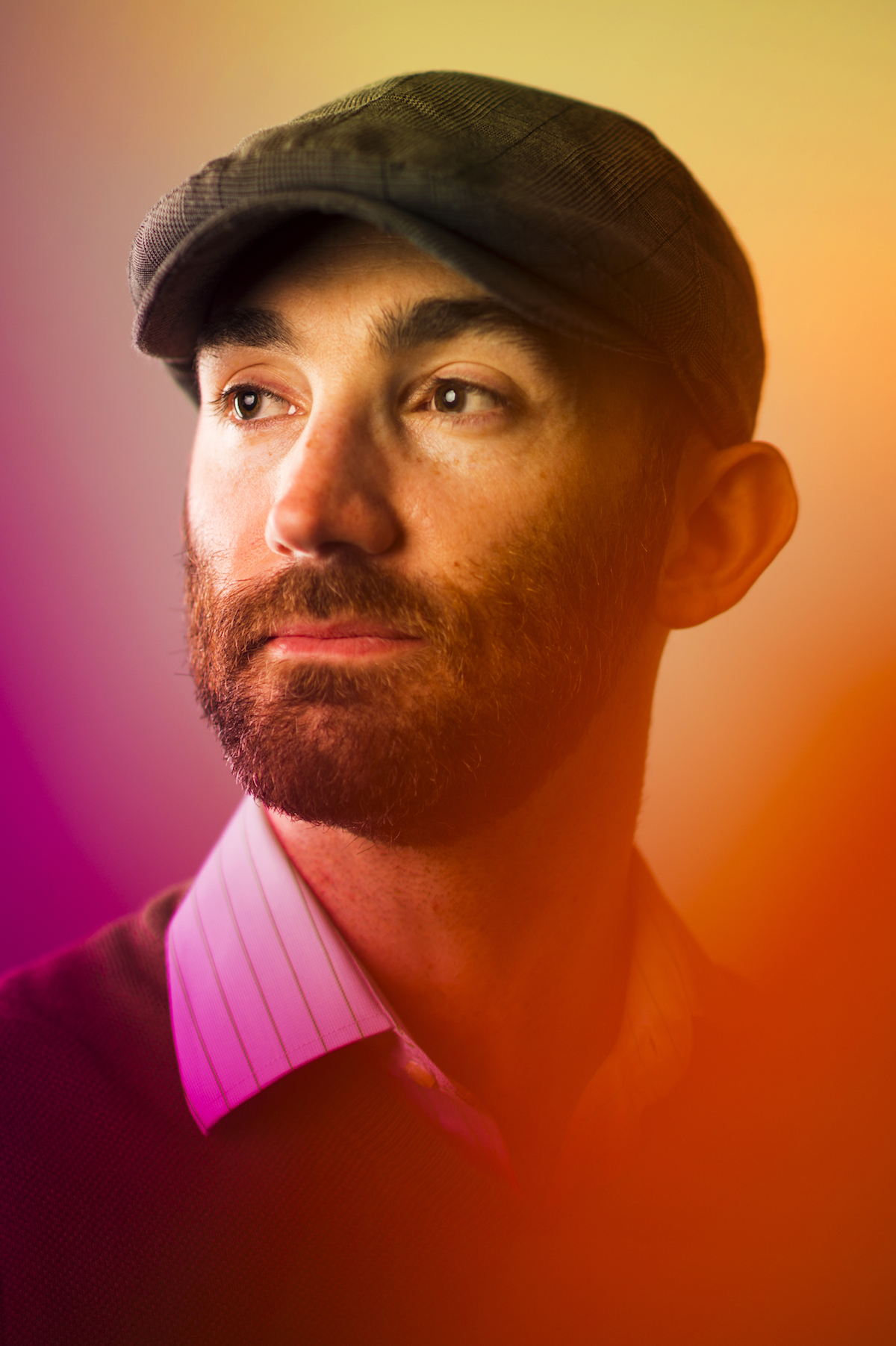From the Army to academia: one professor’s journey to Northeastern

Charn McAllister enrolled at West Point in July 2001, just two months before 9/11. He was 18 years old, a happy Long Island, New York, native. “I felt fortunate to be afforded all the privileges that freedom can offer,” recalled McAllister, now a newly appointed assistant professor of management and organizational development in the D’Amore-McKim School of Business, “and I felt the need to give back.”
As it turned out, his decision to serve in the military would go on to shape his career path, turning him into a scholar with a research focus on workplace politics.
After graduating from West Point in 2005 with a degree in engineering psychology, he served in the Army for seven years, honing his leadership skills as an air cavalry platoon leader and troop commander in Iraq. His leadership principles were pretty simple: Be kind, show respect, learn from subordinates and superiors alike.
“I’ve always been very observant of people and their behaviors,” said McAllister, who earned his master’s degree in humanities from the American Military University while serving in the Army. “I read quite a bit of leadership literature at West Point and was fascinated by how other people’s actions would affect those they were leading.”
I’m going to be teaching future managers and leaders who will be able to apply their workplace experiences to classroom concepts. That’s going to make the classroom a lot of fun.
Charn McAllister
assistant professor of management and organizational development
One day, while stationed in Iraq, McAllister received a phone call from his wife, Michelle, who suggested that they work to become full-fledged college professors. McAllister had never explicitly considered a career in higher education, but he realized that his fascination with human behavior, his background in psychology, and his wealth of leadership experience in the military qualified him to pursue a terminal degree in management. When he left the Army in 2012, he enrolled in Florida State University’s doctoral program in organizational behavior and human resources with an eye toward academia.
“Management is really just applied psychology in the workplace,” explained McAllister, who received his doctorate this past spring. “I wanted to leverage my years in the military and I felt like the workplace was the setting to do that,” he added. “I care about people’s happiness and I thought my research would have an impact on employee wellbeing.”
McAllister primarily studies political skill—that is, the ability to leverage working relationships in order to achieve personal or organizational objectives. His research has been published in a range of peer-reviewed publications, including the Journal of Management, the Journal of Organizational Behavior, and the Journal of Business and Psychology.

Photo by Adam Glanzman/Northeastern University
What he’s found is that employees with high political skill have the ability to recognize social patterns in the workplace, enabling them to pick the proper team member for a particular project, say, or to ask the right question at the right time. In short, they see workplace opportunities where others don’t. As he explained, “People with high political skill are better able to evaluate opportunities using interpersonal influence and apparent sincerity.”
McAllister is looking forward to “hitting the ground running” this fall. But he won’t be the only member of his family on campus. Michelle—who extolled the virtues of academia in her phone call to McAllister when he was deployed to Iraq—will serve as a visiting professor of accounting for the 2017-18 academic year. They chose Northeastern for three primary reasons: the strength of the co-op program, the highly motivated students, and the opportunity for McAllister to continue working with assistant professor Parker Ellen, one of his former research colleagues at FSU.
McAllister said all the students in his “Organizational Behavior” course this fall were required to have completed a co-op before enrolling, a prerequisite that he called “unparalleled.” “Oftentimes students have high school experience or club experience, but that’s not the same as having a real job for six months,” he said. “That pushed Northeastern over the edge for me.”
McAllister, who won a student teaching award at FSU, is a big proponent of classroom discussion and debate. It’s not uncommon for him to sit with his students in class, eschewing the lectern for a seat with his pupils. “I’m going to be teaching future managers and leaders who will be able to apply their workplace experiences to classroom concepts,” he said. “That’s going to make the classroom a lot of fun.”





